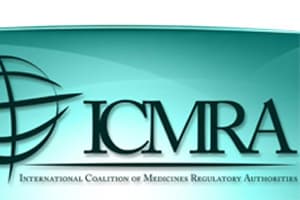
Medicines regulators from across the world will work together to bring vital medicines to people affected by the Ebola outbreak in West Africa.
Organisations including the European Medicines Agency (EMA), the US FDA and Japan’s Ministry of Health, Labour and Welfare plan to strengthen their cooperative efforts to encourage submissions for new Ebola medicines and to accelerate access to investigational treatments for people affected by the current outbreak.
In addition, the partners – who form the International Coalition of Medicines Regulatory Authorities (ICMRA) – say that improved cooperation to make new medicines available will mean countries are better prepared in the future if another similar outbreak were to happen.
The plan was agreed at the World Health Organization’s (WHO) International Conference of Drug Regulatory Authorities (ICDRA) held in Rio de Janeiro, Brazil, last week and is currently being discussed at a WHO consultation on potential Ebola treatments and vaccines in Geneva, Switzerland.
The current Ebola outbreak has so far claimed the lives of nearly 2,000 people in West Africa and has led to several companies and organisations fast-tracking the use and development of medicines and vaccines.
This includes Mapp Pharmaceutical’s investigational antibody ZMapp, which is still to be tested in human clinical trials but seems to have help three affected health workers to recovery. However, stocks of the drug are now thought to be depleted.
Both GlaxoSmithKline (GSK) and Johnson & Johnson (J&J) are working on vaccines for the Ebola virus with support from the National Institute of Allergy and Infectious Diseases (NIAID), part of US National Institutes of Health (NIH).
GSK appears to have the most advanced prospect, with trials in health human volunteers planned for September, while J&J aims to begin clinical trials in humans in early 2015.
Due to the urgent need for these products, it’s likely they will be used in the field before full safety and effectiveness can be determined. This poses a problem in West Africa because many countries do not have reliable systems for routine data collection, according to the ICMRA.
It’s this issue where collaboration between regulators will be most significant, with the partners stating they will “join their expertise to consider evidence from a wide range of sources to allow for decision-making under a greater degree of scientific uncertainty”.




